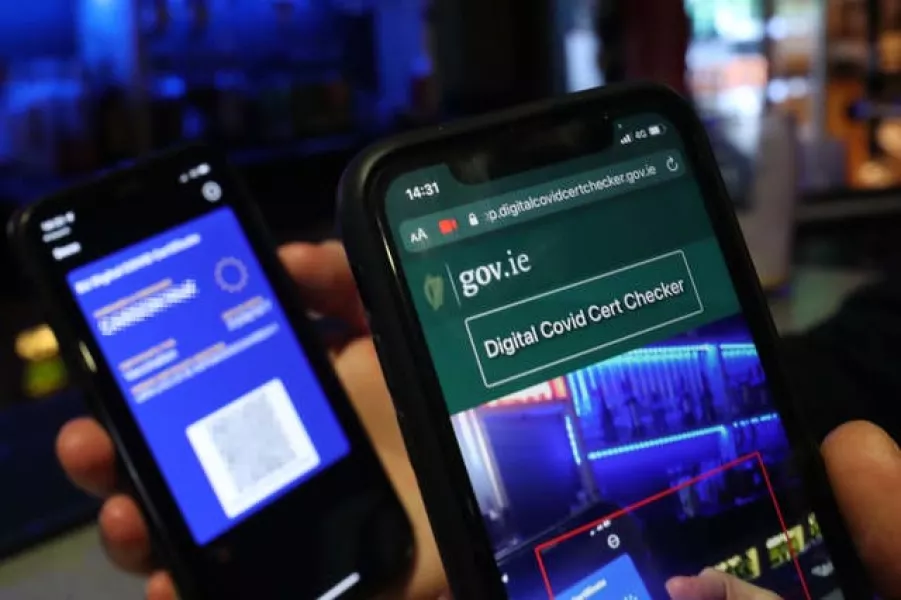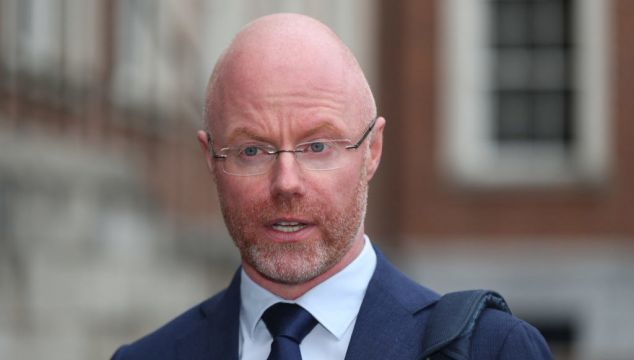The Minister for Health has warned the hospitality industry that the Government intends to get “very serious” about non-compliance with Covid-19 entry rules.
Stephen Donnelly said he favoured the introduction of urgent and rapid sanctions for outlets that are not checking patrons for vaccine certification.
Mr Donnelly also said the Government was considering subsidising antigen testing for the wider population in Ireland.
He said rapid testing for close contacts in schools could be rolled out by Christmas.

The Minister’s comments on the hospitality sector come after the Economic and Social Research Institute (ESRI) found that the number of outlets not asking customers for Covid-19 certification had almost doubled in a month.
The research, published last week, found that 37 per cent of indoor diners in pubs said they were not asked for certification, compared with 21 per cent the previous month.
For restaurants, 34 per cent of diners said they were not asked for their Digital Covid Cert.
Mr Donnelly said that while the Cabinet had not decided how to respond to the increase in non-compliance, he favoured more robust sanctions for offending outlets.
“We need to get very serious with industry on that,” he said.
The Minsiter for Health said the sector had assured the Government it could reopen safely and in compliance with the law.
“I want to acknowledge that the majority of pubs, restaurants and hospitality outlets are doing that,” he told RTÉ Radio One.
“However, many aren’t and the ESRI are saying the number that are refusing to obey the law is increasing. I think that’s a very serious issue.
“The Taoiseach, my understanding, is going to be meeting with the hospitality sector, and that large minority who are not following the law, who are putting people’s lives at risk, I think they have very serious questions to answer.
“A targeted approach is the way to go. We shouldn’t be penalising the many hospitality outlets who are doing exactly the right thing and who are trading safely.
“If the industry, if that large minority, do not start doing the right thing I certainly would be in favour of more rapid sanctions against not the industry, but the outlets who are not doing the right thing.”
On calls from industry representatives for more spot checks by authorities, the Mr Donnelly said thousands of inspections were already taking place and more were planned.
“But I don’t believe that the industry should be blaming Government for the industry not obeying the law,” he said.
“I believe there is a serious onus on these organisations to engage with their members and make sure that there is compliance.”
On the prospect of subsidised antigen testing for the wider population, Mr Donnelly said the proposal was being reviewed.
“Subsidised antigen testing is one of the things that we are certainly looking at, it is already playing a very serious role,” he said.
The minister said Ireland had also signed up to an EU procurement process for recently developed antiviral drugs, but the initiative was dependent on authorisation from the European Medicines Agency.
Mr Donnelly said that while Ireland was experiencing a serious increase in case numbers among younger age groups, transmission levels in older cohorts had either levelled off or were starting to fall.
He urged people to reduce their discretionary social contacts and expressed confidence the Government’s Covid strategy would result in the suppression of the current wave of the virus.
He said hospital admission rates had stabilised and intensive care admissions had fallen over the last week.
“That’s very, very encouraging,” he said.
Mr Donnelly said he would favour booster jabs being more widely rolled out across the population.







